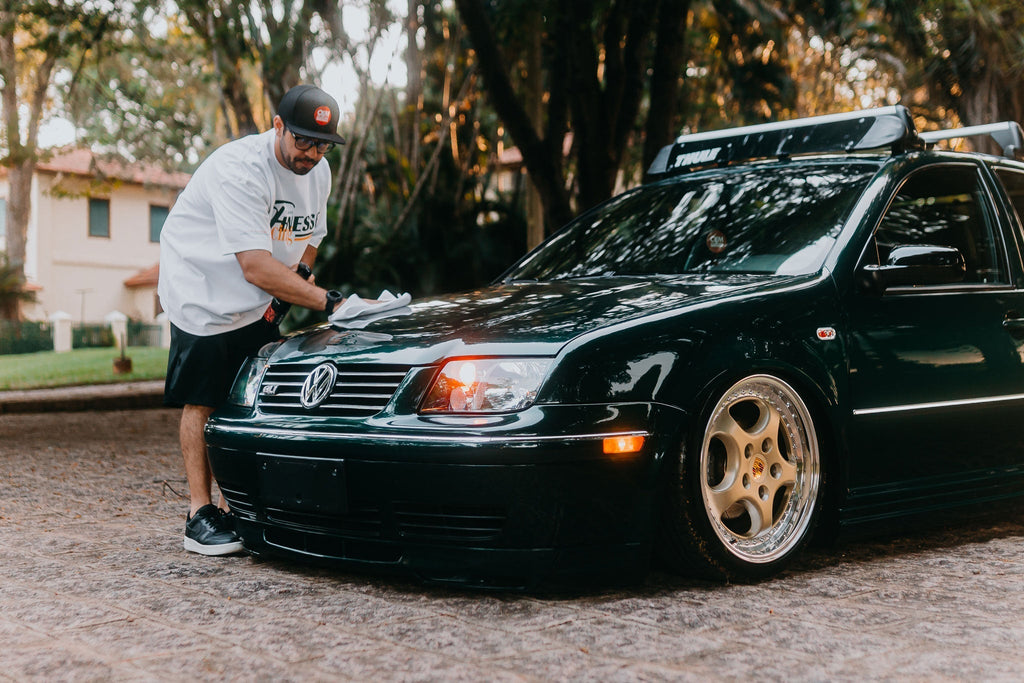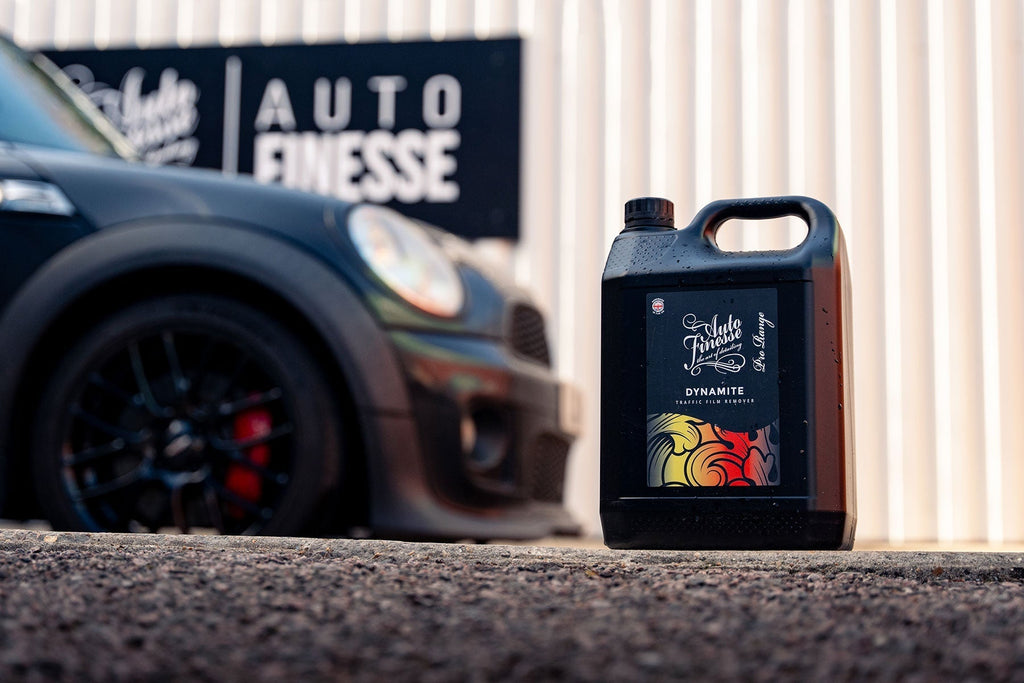How To Get The Best Results With One Step Compound

In This Guide You Will:
- Learn to use One Step Compound with your DPX Dual Action Polisher and see the impressive results.
- See how to remove deep scratches and swirl marks while achieving a flawless finish—all with a single product.
- Discover this unique formula works and the ideal speed settings for a complete single-stage polish.
- Find out which pads to use and how to achieve the perfect finish for an all-in-one paintwork solution.
Get the most from One Step Compound every time with this quick and simple detailing guide...
Our revolutionary One Step Compound is a single-stage machine polishing compound that's one of the world's best detailing products for safely removing scratches and swirl marks.
An advanced blend of diminishing abrasives this product has been specifically developed to start your set as a coarse compound to cut through defects, but it breaks down to a fine refining compound as you work it through with your machine polisher turning it into a fine refining polish. This means you can restore and finish down to flawless without changing compounds or polishing pad. A true single stage polish that does it all.
This advanced polishing product saves you time and money and all it requires is for you to slightly adapt to a polishing technique to this type of formula. That's why we've had our professional detailers put together few handy hints on how to get the best results and, in one simple step, transform your paintwork from this...

To something like this...









The ultimate single-stage car polish for paint correction, One Step All-in-One Compound is a speedy car detailing game-changer that offers the easy way to remo... See product details More
How Does One Step Compound Remove Defects?
The this single stage polish works is by using abrasives that cover a wider range of cut than a traditional compound. This means that they start off as a cutting stage particle and, as when you work them through, they fracture into smaller and smaller particle sizes, this works down through all the compounding stages at the same time. Because of this wider range of breaking down we recommend you work slightly longer sets, this ensures that you not only achieve the maximum available cut level, but that the polish is worked all the way through the refining cycle, too. To learn more on the science of how all polishes and compounds work on a molecular level, see our article: Understanding Car Polishes And Compounds.
It takes a lot of energy to break the compound down all the way and, although technically possible, this makes One Step geared more towards machine polishing. With One Step we recommend using a polishing machine for the best and most consistent results. One Step is different to products like Tripple All-in-One Polish which is specifically designed to break down easily. Even by hand Tripple can refine paintwork and remove light swirling but it doesn't have the range of cut that comes with One Step for removing deeper scratches and swirl marks. Learn more about these products and which to choose in our full guide: Tripple And One Step The Differences.



Choose The Right Polishing Pad
Choosing the correct Machine Polishing Pad is critical if you want to maximise the results from One Step. If your pad is too hard, you won't be able to finish down all the way, leaving behind "hazing' or "scouring'. A pad that's t soft will struggle to fully break down the abrasive particles and get same kind of results.
The choice you need to make is right in the middle. We recommend using a medium polishing pad, like our Revitalise No:2 Pad, Revitalise No:2 Spot Pad or Pro Series Medium Polishing Pad No.23.
One Step itself has been specifically developed for use with all DA (Dual Action) machine polishers. You can achieve good results with One Step and a rotary polisher of course, but this type of compound gets the best results when used with a DA.


Lubricate With Pad Prime
To prevent any scrubbing, especially with a brand new polishing pad it's important to prime the foam. Just 2 spritzes of Pad Prime is plenty to get you started.







The Auto Finesse® Pad Prime is the ideal product for prepping your car polishing pads, before use. Designed to be used with our Revitalise paint correction sys... See product details More
Control Your Machine Polisher
For the first set, apply 4 small pea-size drops of One Step directly to your polishing pad. For subsequent sets only 2 pea-size drops of polish are required
Work on an area approximately 40cm x 40cm, placing the polisher on the surface and starting at speed 1-2. Immediately move the pad across the area in one quick pass to spread the polish evenly.
Then step up the speed to 4-5 and work in slow overlapping passes with light/medium downward pressure on the machine, keeping the pad flat as you work.
Work the product through for about 5 mins per section, until the compound turns clear. Then you can knock the speed down to 2-3 and perform a further two or three slow overlapping passes to finish down.



Ensure Your Compound Is Worked All The Way Through
Using a prolonged exaggerated polishing method with a slower speed method harnesses all of the available "bite' from the One Step and helps achieve the clearest refinement possible.
Once you're certain that you've worked the compound through the abrasives will be fully broken down and no longer cutting or refining.Then you can buff away the residue with a clean microfibre Work Cloth. For the best finish we always recommend buffing with brand new cloths, this simply ensures that you're working as safely as possible with and not inflicting damage on these unprotected surfaces.

Don't Forget Your Protection
You always need to add protection to lock in your work, enhance the gloss, and safegaurd surfaces from the elements.
When using One Step you can add any type of protection to the surfaces because this product contains no waxes, fillers or shining agents. This means that it won't block the chemical bonding of ceramic coatings and it also creates the optimal surface for car waxes and paintwork sealants. Whatever your choice of protection you can use it with One Step.



Learn More
Those are our our top tips on how you can get the best results from One Step Compound. Fore more on the art of machine polishing see our full article: A Basic Guide To Machine Polishing.
For even more how-tos, guides and product spotlights be sure to check out the Guides Section Of Our Blog.








The ultimate single-stage car polish for paint correction, One Step All-in-One Compound is a speedy car detailing game-changer that offers the easy way to remo... See product details More







































